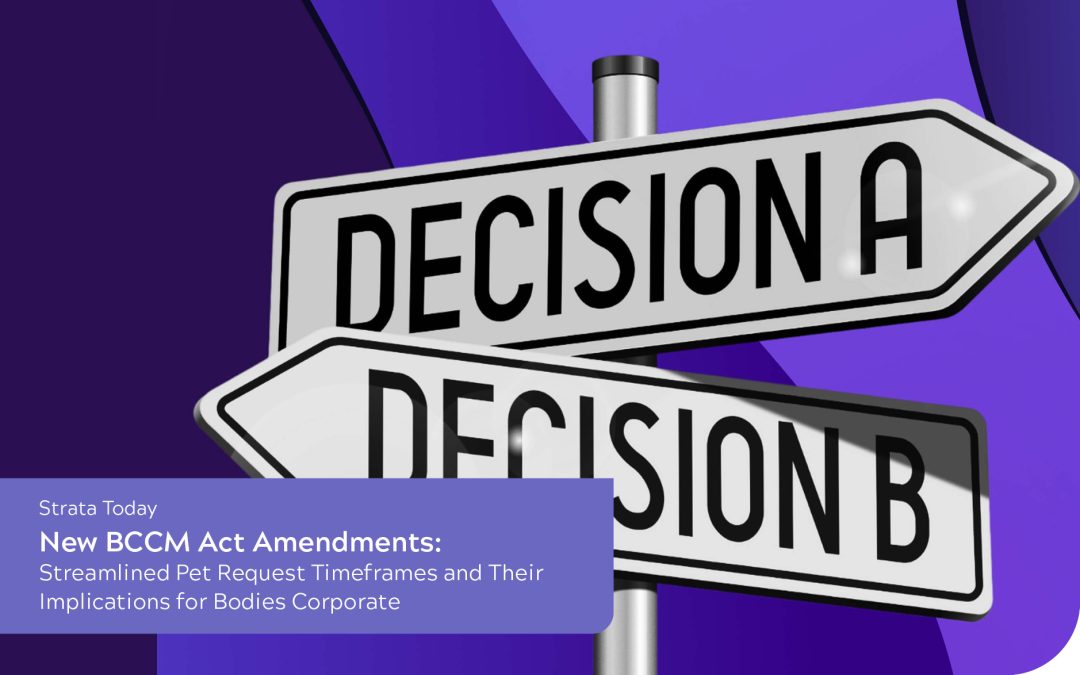Recently we highlighted some of the key the amendments to the BCCM Act which came into effect on the 1st of May 2024. In addition to those amendments, there has also been amendments to the various BCCM regulation modules that also came into effect on the 1st of May 2024. Perhaps the change with the potential to impact many bodies corporate the most is the imposition of shorter decision timeframes for pet requests.
What has changed?
Formerly a body corporate committee had up to 6 weeks to respond to a pet request, as with all motions put to a Committee. Under the amendments, a committee now has a maximum period of 21 days to consider a pet request specifically. The timeframes for all other types of decisions remains unchanged. If the committee does not make a decision within the 21-day timeframe, the pet is deemed to have been approved.
Alternatively, if a general meeting is needed to decide the request (if pet approvals have been made a restricted issue for the Committee) , the pet will be taken to be approved by the body corporate if either:
- A general meeting is not called within 21 days after the request is made.
- The body corporate does not finalise the request within 6 weeks after the general meeting notice is issued.
The amendment seeks to address an issue where some bodies corporate were deferring making a decision on pet applications in the hope that the delays in the approval process would deter potential applicants.
While that might all appear to be straightforward and for many schemes it will be, it does lead to several considerations. For example:
- How complete does a request need to be for it to be appropriately made and therefore for the 21-day period commence and what if the Committee request further information to consider the request? For example, if an application lacks relevant details such as the type, breed, or council registration details of an animal and these are requested from the applicant upon receipt of the request, however the applicant fails to respond would that than lead to a ‘deemed approval’ if the applicant did not respond to those requests?
- What conditions (if any) would be imposed on a deemed decision? In our view this will be a major consideration for committees and bodies corporate when considering pet requests moving forward. If an indifferent approach is taken and all requests are disregarded until deemed to be approved the likely absence of any approval conditions will surely create enforcement challenges should any problems arise.
- Many schemes will also have to amend their practices from tabling all requests at scheduled Committee meetings, to considering requests by Vote Outside of Committee Meeting to ensure the timeframes are adhered to.
- For schemes where pet approvals are a restricted issue, that decision may need to be reconsidered as the costs of calling Extraordinary General Meetings for each pet request could quickly become unsustainable.
In time it is likely that some of these matters will become clearer as disputes arise, which in turn will lead to adjudication and decisions in the Commissioner’s Office. However, in the interim bodies corporate should adopt a proactive approach to any pet requests and work closely with your appointed strata manager to ensure all requests are handled promptly, reasonable conditions of approval are imposed and all requests recorded on pet registers.
Should you have any questions regarding any of these amendments the friendly team at Hartley’s is here to help.
